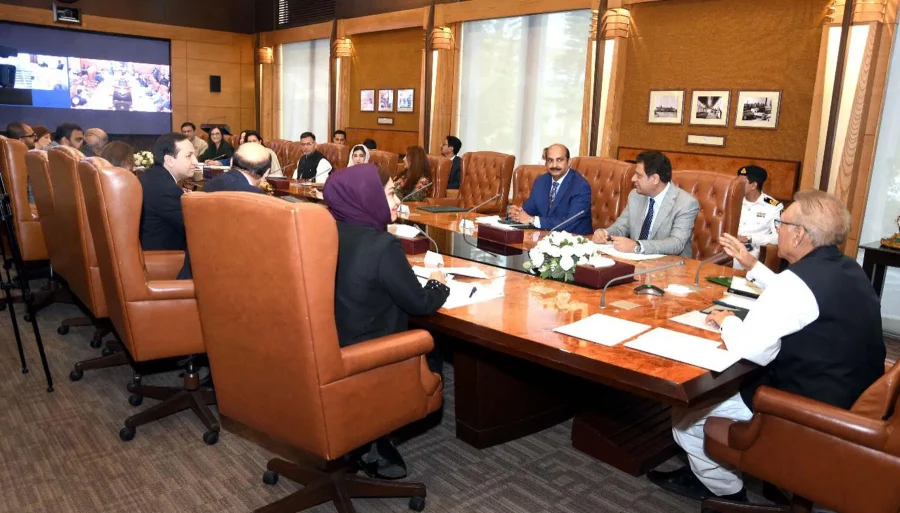President of Pakistan Dr Arif Alvi on Thursday called for developing a curriculum for differently-abled students to effectively cater to their special educational requirements.
He emphasised that the curriculum should also focus on the behavioural change of the society towards differently-abled people (DAPs) to support and facilitate them as they had been facing many hardships in their daily lives, including negative attitudes and discrimination.In order to financially empower DAPs, the president urged the need for promptly filling the job quota of DAPs by the federal and provincial governments, besides equipping them with employable skills.The president made these remarks while chairing a follow-up meeting on the facilitation of persons with disabilities (PWDs), at Aiwan-e-Sadr.The meeting was attended by the representatives of the Ministry of Federal Education and Professional Training, Ministry of National Health Services, Regulations and Coordination, Ministry of Human Rights, National Vocational and Technical Training Commission (NAVTTC), National Database and Registration Authority (NADRA), Federal Directorate of Education, Directorate of Special Education, Pakistan Bait-ul-Mal,
UNICEF, National Institute of Rehabilitation Medicine (NIRM), World Health Organization (WHO) and Capital Development Authority (CDA). The secretaries of Social Welfare Departments of the provincial governments as well as the Azad Jammu and Kashmir and Gilgit-Baltistan governments attended the meeting via video-link. The Ministry of Federal Education and Professional Training informed that the Ministry would launch the first phase of the teacher training programme comprising of 120 teachers in May 2023 to better cater to the educational needs of PWDs. The representative of the Sindh Government apprised that they had completed six teacher training programmes at the divisional level for promoting inclusive education for PWDs.
The president appreciated the teacher training programmes of the Federal and Sindh governments for children with disabilities.









